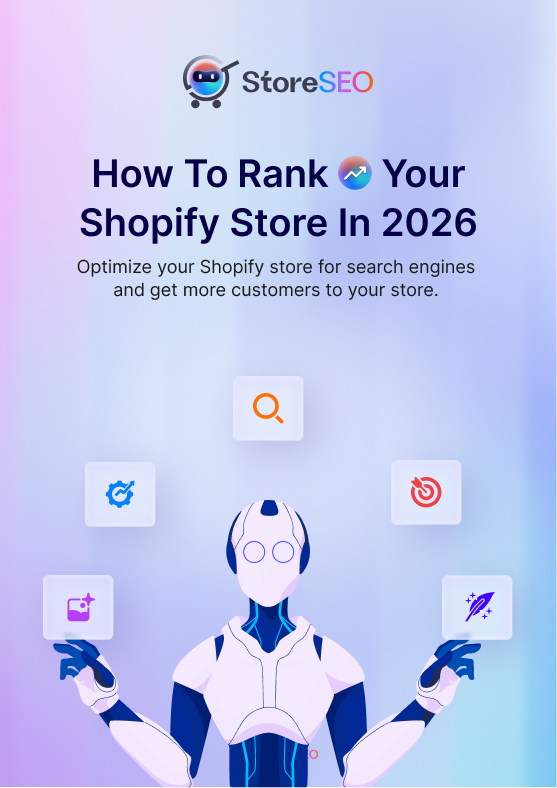Artificial intelligence is changing the way people shop online. With the rise of large language models, or LLMs, more customers are finding stores and products through AI-powered tools and search engines. However, this new technology also brings some challenges, especially when it comes to misinformation. If you run a Shopify store, you might worry about how AI could misrepresent your products or policies. This is where LLMs.txt comes in.

Understanding AI Misinformation in eCommerce
AI misinformation in eCommerce is the spread of false or misleading information through AI-powered systems. This can take several forms:
- Product Descriptions: AI tools can automatically generate product descriptions that exaggerate features or make inaccurate claims. For example, an AI might describe a phone as waterproof when it is only water-resistant, misleading buyers about the product’s capabilities.
- Fake Reviews: AI-generated reviews can make products appear more popular or higher quality than they really are. Some platforms have experienced a surge in fake five-star reviews generated by bots, which influences purchasing decisions and undermines genuine customer feedback.
- Deepfakes and Manipulated Images: AI can create altered product images or videos that misrepresent the actual product. For instance, scammers have used AI to generate images of high-end tech devices that do not exist, enticing shoppers to buy products they will never receive.
- Chatbots and Virtual Assistants: AI-powered customer service tools may provide incorrect information about products, prices, or return policies. This can lead to confusion and frustration for customers seeking accurate answers.
Why Does AI Misinformation Happen?
Several factors contribute to the spread of AI misinformation in eCommerce. The most common ones are briefly discussed below:
- Data Quality Issues: AI systems rely on large datasets for training. If these datasets contain errors, outdated information, or biases, the AI will likely produce misleading or incorrect outputs. For example, if a product’s specifications change but the AI is trained on old data, it may continue to generate inaccurate descriptions.
- Automation at Scale: AI can generate content rapidly, which means errors or false information can spread quickly and widely. This is especially problematic during high-traffic shopping periods like Black Friday when scammers use AI to create convincing fake ads or listings.
- Lack of Oversight: Many eCommerce platforms do not have strict controls over AI-generated content. Without human review, misleading or fraudulent information can go live and influence consumers before it is detected.
- Intentional Manipulation: Some sellers intentionally use AI to create deceptive content. For example, AI-generated counterfeit product listings or fake influencer endorsements are used to trick buyers and drive sales of non-existent or substandard products.
Impact of AI Misinformation on Shopify Stores
AI misinformation can have significant consequences for both consumers and businesses, which would potentially create a negative impact on the brand or business:
- Loss of Trust: When customers realize they have been misled, such as receiving a product that does not match its description, they may lose trust in the platform or brand. A study found that 80% of consumers are now skeptical of AI-generated content, making it harder for businesses to build credibility.
- Financial Loss: Consumers may spend money on products that do not meet expectations, leading to increased refund requests and negative reviews. In the UK, shoppers lost over £11 million to online shopping scams in the lead-up to Christmas, much of it driven by AI-generated fake listings.
- Legal Risks: Spreading false information can result in regulatory fines or lawsuits for deceptive advertising. For example, deepfake videos impersonating company executives or false product safety claims can trigger legal action and regulatory scrutiny.
- Reputational Damage: Brands associated with misinformation may suffer long-term harm to their reputation. Even if the misinformation is not directly created by the brand, its presence on a platform can make consumers wary of all sellers on that site.
How LLMs.txt Reduces AI Misinformation
LLMs.txt helps reduce AI misinformation by pointing artificial intelligence models to your most trustworthy pages. For example, you can list your official product pages, your frequently asked questions, and your store policies in the LLMs.txt file. When an AI tool reads this file, it knows to use these pages as its main sources of information. This makes it less likely that the AI will pick up old or incorrect details from other parts of your website.
By using LLMs.txt, you can also make sure that AI tools do not use outdated or sensitive pages. If you have old blog posts or policies that no longer apply, you can simply leave them out of the LLMs.txt file. This way, the AI will focus on your current and official content. This helps protect your brand and ensures that customers get the right information when they interact with AI-powered tools.
Another benefit is that LLMs.txt can help AI understand your products and services more clearly. When you guide the AI to your official descriptions and answers, you reduce the risk of misunderstandings. This can lead to better product recommendations and more accurate customer support, both of which are important for building trust with your customers.
Implementing LLMs.txt in Your Shopify Store
Adding LLMs.txt to your Shopify store is a straightforward process. You can use Shopify apps or online tools to create the file. The key is to list only your most important and reliable pages. For example, you might include your main product collection, your About Us page, your frequently asked questions, and your privacy policy. You should review and update the LLMs.txt file regularly, especially if you add new products or change your policies.
When creating your LLMs.txt file, it is helpful to use clear and simple URLs. You can also add short descriptions to help AI tools understand what each page is about. Try to avoid including pages that are outdated, under construction, or not meant for public view. After you set up the file, you can monitor how AI tools interact with your site and make adjustments as needed.
Additional Strategies to Handle AI Misinformation
LLMs.txt is a great first step, but it works best when combined with other good practices. You should regularly check your website for outdated or incorrect information. Make sure your product descriptions, policies, and FAQs are always up to date. You can also be open with your customers about how you use AI and how you protect their data.
It is important to educate your team and your customers about the limits of AI-generated content. Remind them that while AI can be helpful, it is not always perfect. Encourage feedback and questions, so you can quickly correct any mistakes that might appear.
Implement LLMs.txt and Make a Clean Impression on AI Search
LLMs.txt generator is a simple but powerful feature for Shopify store owners that would help them to get accurately indexed by the AI and show clear results. By guiding AI models to your most reliable and up-to-date content, you can protect your brand, improve customer trust, and make sure your eCommerce business stands out in the age of artificial intelligence. Adding and maintaining an LLMs.txt file is a smart way to take control of how AI sees your store and shares your information with the world.
If you need any help with StoreSEO, feel free to contact our support team. And for more exciting updates and news, subscribe to our blog. Good luck!










